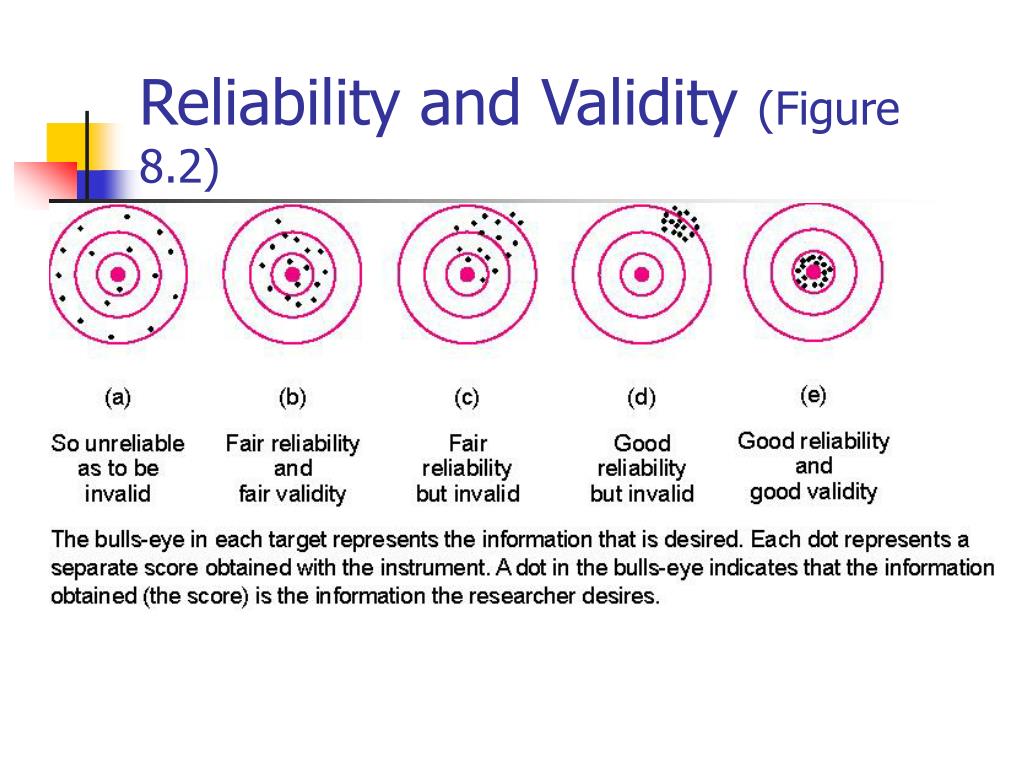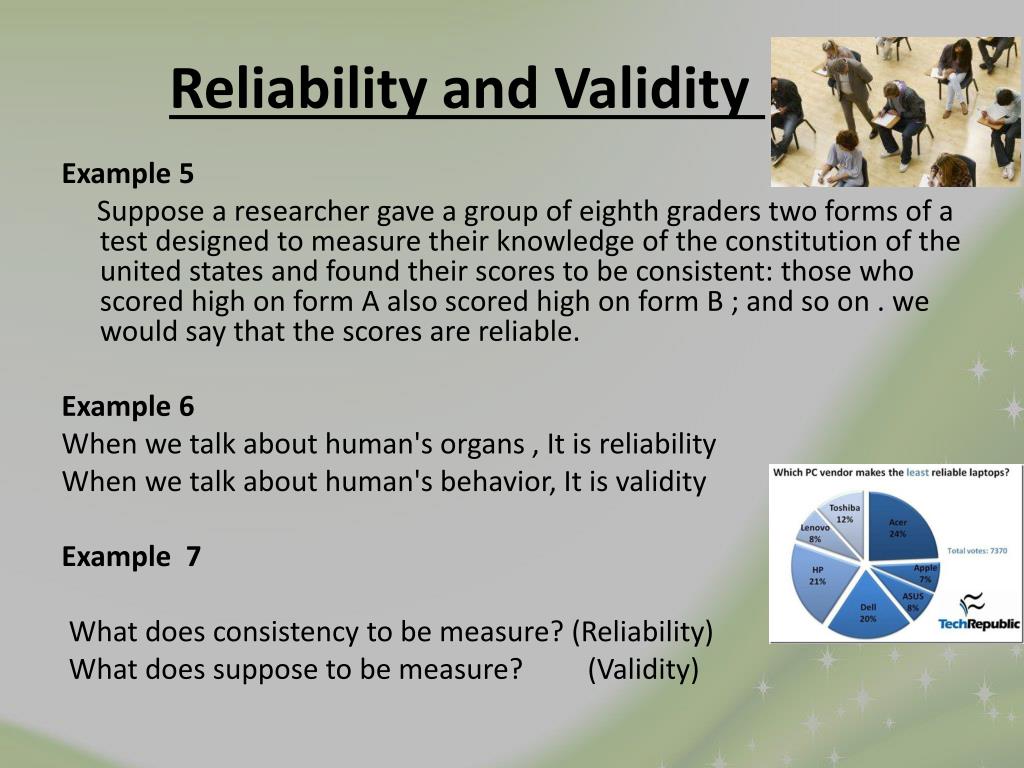

Test-retest reliability: This refers to the extent to which a test produces consistent results when administered to the same individuals at different times.There are different types of reliability, including: Reliability is important in research because it ensures that the results obtained are consistent and reproducible. It is the degree to which a test produces consistent and stable results over time and across different situations or conditions. Reliability refers to the consistency, stability, and accuracy of a measurement or research study. Face validity: This refers to the extent to which a test appears to measure what it is supposed to measure.

Construct validity: This refers to the extent to which a test measures the construct it is supposed to measure.Criterion validity: This refers to the extent to which a test is correlated with a particular criterion or standard.Content validity: This refers to the extent to which a test measures all aspects of a particular construct or concept.There are different types of validity, including: Validity is essential in research because it ensures that the results obtained are accurate and reliable. It is the degree to which a test accurately assesses the construct or concept it is supposed to measure. Validity refers to the extent to which a test, measurement, or research study measures what it is intended to measure. In the following sections, we will explore each concept in more detail and discuss how they can be assessed and improved in research studies. Understanding the difference between validity and reliability is crucial in ensuring the accuracy and trustworthiness of research findings. Similarly, a study may be valid but not reliable, meaning that it accurately measures what it claims to measure but the results are not consistent over time or across different researchers or methods. A study may be reliable but not valid, meaning that it consistently produces the same results but those results do not accurately reflect what is being studied. While both validity and reliability are important in research, they serve different purposes. It is the degree to which a study produces consistent and dependable results over time and across different researchers or methods. On the other hand, reliability refers to the consistency or stability of a measure or research findings. It is essentially the degree to which a study is measuring what it claims to measure. Validity refers to the extent to which a study accurately measures or reflects what it is intended to measure or reflect. However, these two terms have distinct meanings and it is important to understand their differences to ensure accurate and trustworthy results. When it comes to research and data analysis, two terms that are often used interchangeably are validity and reliability.


 0 kommentar(er)
0 kommentar(er)
